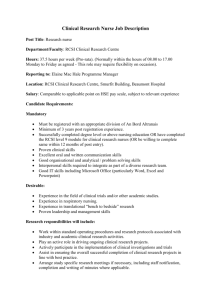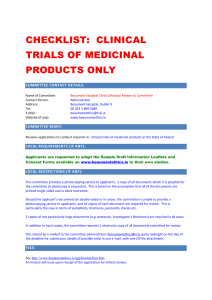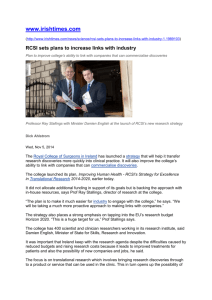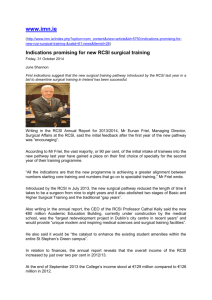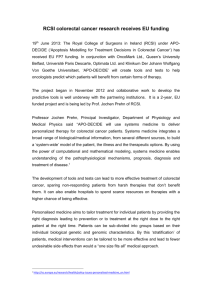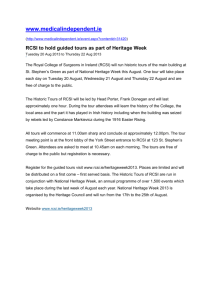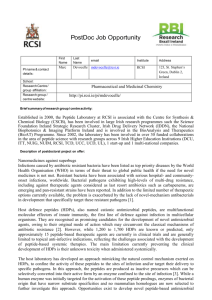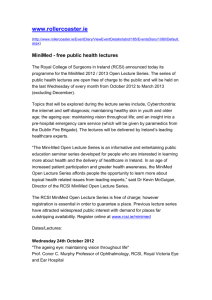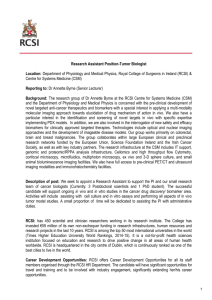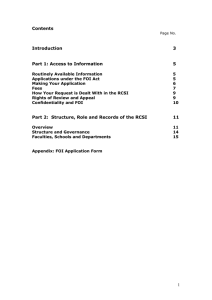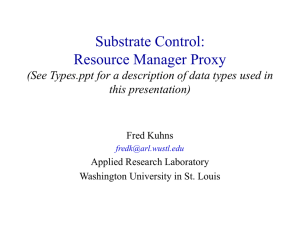05.11.15 - medicalindependent.ie - New RCSI physician associate
advertisement
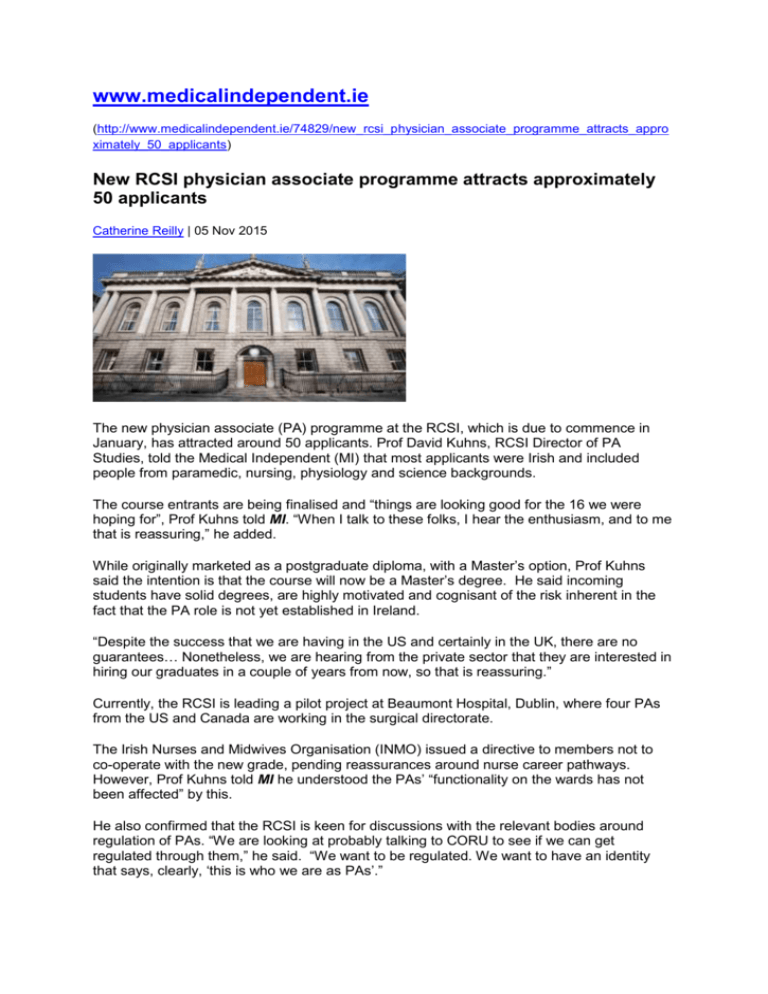
www.medicalindependent.ie (http://www.medicalindependent.ie/74829/new_rcsi_physician_associate_programme_attracts_appro ximately_50_applicants) New RCSI physician associate programme attracts approximately 50 applicants Catherine Reilly | 05 Nov 2015 The new physician associate (PA) programme at the RCSI, which is due to commence in January, has attracted around 50 applicants. Prof David Kuhns, RCSI Director of PA Studies, told the Medical Independent (MI) that most applicants were Irish and included people from paramedic, nursing, physiology and science backgrounds. The course entrants are being finalised and “things are looking good for the 16 we were hoping for”, Prof Kuhns told MI. “When I talk to these folks, I hear the enthusiasm, and to me that is reassuring,” he added. While originally marketed as a postgraduate diploma, with a Master’s option, Prof Kuhns said the intention is that the course will now be a Master’s degree. He said incoming students have solid degrees, are highly motivated and cognisant of the risk inherent in the fact that the PA role is not yet established in Ireland. “Despite the success that we are having in the US and certainly in the UK, there are no guarantees… Nonetheless, we are hearing from the private sector that they are interested in hiring our graduates in a couple of years from now, so that is reassuring.” Currently, the RCSI is leading a pilot project at Beaumont Hospital, Dublin, where four PAs from the US and Canada are working in the surgical directorate. The Irish Nurses and Midwives Organisation (INMO) issued a directive to members not to co-operate with the new grade, pending reassurances around nurse career pathways. However, Prof Kuhns told MI he understood the PAs’ “functionality on the wards has not been affected” by this. He also confirmed that the RCSI is keen for discussions with the relevant bodies around regulation of PAs. “We are looking at probably talking to CORU to see if we can get regulated through them,” he said. “We want to be regulated. We want to have an identity that says, clearly, ‘this is who we are as PAs’.” Prof Kuhns underlined that PAs often take on routine medical tasks and enhance rather than detract from doctor training. “We have building enthusiasm from other surgeons in the area who are hearing about this and saying, ‘how do I get one of those?’... I think things are moving in a positive direction.”
